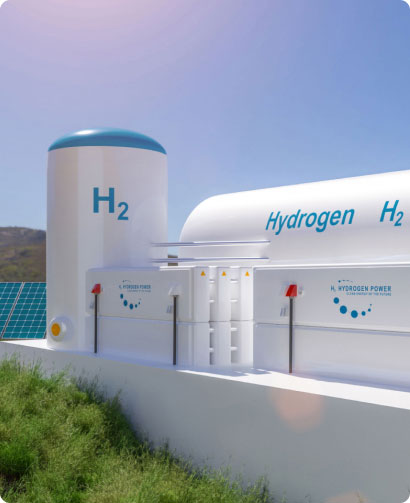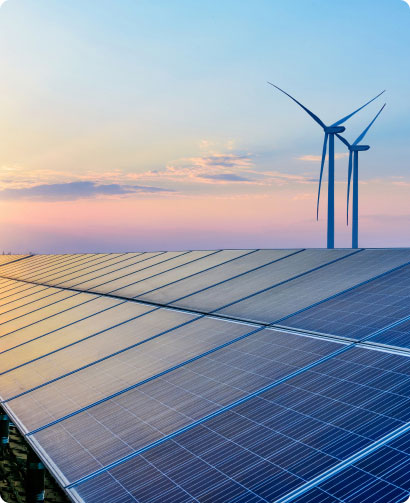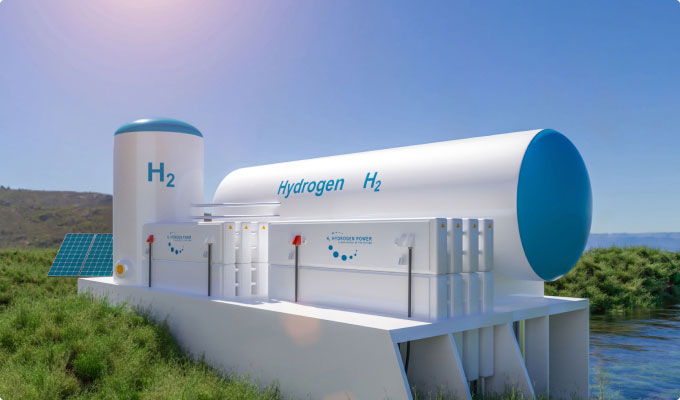L
e
a
d
i
n
g
K
-
E
n
e
r
g
y
K
o
r
e
a
I
n
s
t
i
t
u
t
e
o
f
E
n
e
r
g
y
R
e
s
e
a
r
c
h
Energy technology innovation through super-convergence and super-gap
board
-
NOTICE
전체보기
-
25
2025-06
Korea Moves Closer to Domestic Large-Scale Wind Turbine Development ? KIER Succeeds in Localizing Design Platform and Integrated Infrastructure for Wind Blades
-
02
2025-06
Breakthrough in Next-Generation EV Battery: Residual Li Issue in High-Ni Cathode Materials Resolved
-
24
2025-04
Enhanced Durability of Fire-Safe Aqueous Zinc-Ion Batteries via Electron Sponge Technology
-
25
2025-06
KIER SNS
Go to Korea Institute
of Energy Research SNS
Hydrogen Supply and Utilization Technology
 Hydrogen Supply and Utilization Technology
Hydrogen Supply and Utilization Technology
The Hydrogen Energy Institute at the Korea Institute of Energy Research is conducting research related to hydrogen energy, which is one of the 12 national strategic technologies for future challenges. It is developing technologies for the production, storage, and demonstration of hydrogen, along with materials, composite materials, and catalysts crucial for widely used fuel cells. It is also focused on strengthening the domestic industrial ecosystem by constructing and operating infrastructure capable of water electrolysis and fuel cell performance evaluation, standardization, and certification.
Key Achievements- Design and manufacture of a 250kW-class alkaline water electrolysis stack module.
- High-efficiency hydrogen production and carbon-free power generation technologies for an 8kW-class SOEC stack and a 4kW-class SOFC stack
- Antioxidant technology for improving the chemical durability of polymer electrolyte membrane fuel cells
- High-power, long-lasting solid oxide fuel cell technology
Renewable Energy Innovation Technology
 Renewable Energy Innovation Technology
Renewable Energy Innovation Technology
The Renewable Energy Institute at the Korea Institute of Energy Research is actively participating in the global trend of energy transition and carbon neutrality through R&D in solar energy technology and energy storage technology. This effort aims to collectively overcome the climate crisis humanity is facing, and strengthen national energy security while addressing environmental issues. Specialized research areas of the Renewable Energy Institute include solar cell and photovoltaic technology, renewable energy resource mapping and forecasting technology, zero-energy solar houses, and energy storage system and material technology.
Key Achievements- Development of the world's highest efficiency semi-transparent perovskite top cell at 21.68%
- Developing the first-ever bifacial tandem solar cell in the nation
- Achievement of the world's highest conversion efficiency for lightweight tandem solar cells (four-terminal 24.5%, two-terminal 22.8%)
- Selection of solar/wind resource maps as national key data for the implementation of digital government
Clean Energy Integration Technology
 Clean Energy Integration Technology
Clean Energy Integration Technology
The Climate Change Research Division at the Korea Institute of Energy Research is addressing climate change through the development of technologies for reducing, capturing, and utilizing greenhouse gases, and securing clean air quality through the development of fine dust reduction technologies. It plays a role in advancing sustainable development by focusing on research and development of clean energy and high-value technologies obtained from fossil fuels, biomass, and waste resources, as well as eco-friendly energy storage technologies.
Key Achievements- CO2 VSA design and operation technology for capturing CO2 in hydrogen production facilities
- Core technology for reusing and recycling electric vehicle waste batteries
- Chemical looping combustion technology enables the separation and emission of CO2 from natural gas combustion right from the beginning.
- Gasification technology for recycling waste plastic to promote a resource recycling economy.
Energy Systems and Energy Materials
 Energy Systems and Energy Materials
Energy Systems and Energy Materials
The Energy Efficiency Research Division at the Korea Institute of Energy Research is dedicated to enhancing energy efficiency throughout the entire life cycle, from production to consumption. Their research focuses on smart energy technologies to reduce greenhouse gas emissions and tackle climate change. Key research areas include improving the use of renewable energy by incorporating artificial intelligence (AI) and information and communication technology (ICT). Additionally, important areas of focus are technologies that save energy, effective energy conversion methods, energy storage systems, reducing emissions during combustion, and distributed energy networks.
Key Achievements- Energy management solutions are created using physical data models for industrial manufacturing sites.
- Core technology for ultra-low temperature refrigeration using air as a refrigerant with zero GWP (Global Warming Potential)
- DNA-based predictive diagnostic management technology for renewable energy to enhance safety
- Ammonia combustion technology for carbon neutrality in the energy sector



